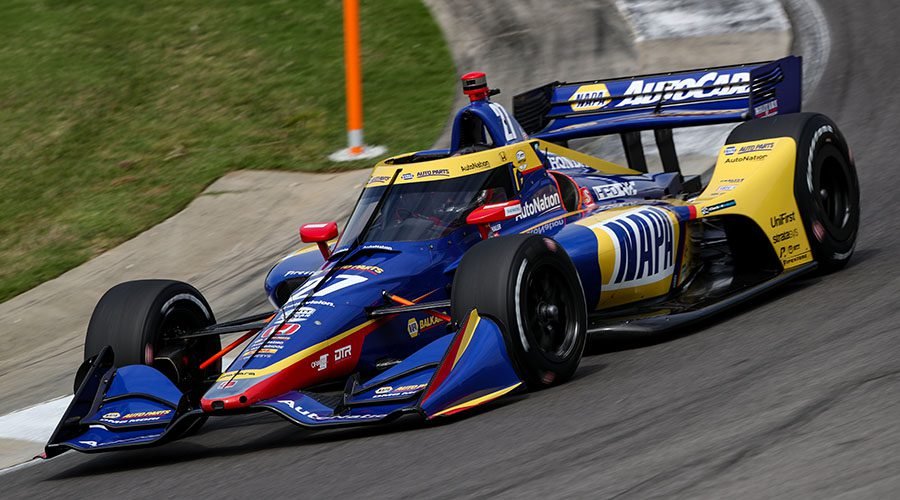Getting involved in youth racing programs is a fantastic way for young drivers to develop their skills, gain valuable experience, and pursue their passion for motorsport. Whether you’re a parent looking to support your child’s racing aspirations or a young driver eager to start, here’s a comprehensive guide on how to get involved in youth racing programs:
1. Research and Understand the Options
Types of Youth Racing Programs:
- Go-Kart Racing: Often the entry point for young drivers, go-kart racing provides foundational skills in car control and racecraft.
- Junior Formula Series: Includes entry-level formula car racing such as Formula 4 or Formula Junior, which are designed for young drivers.
- Youth Stock Car Series: Offers opportunities for young drivers to race in stock cars on shorter tracks.
- Motocross and Off-Road Racing: For those interested in two-wheeled racing or off-road vehicles, motocross and off-road series provide exciting opportunities.
Steps to Take:
- Local Clubs and Organizations: Research local racing clubs, karting tracks, and regional racing organizations that offer youth programs.
- National and International Series: Look into national and international series that offer junior or youth categories.
2. Build a Foundation
Start with Go-Karting:
- Karting Schools: Enroll in a karting school or academy to learn the basics of racing, including driving techniques, race strategy, and safety.
- Local Karting Tracks: Regular practice at local karting tracks helps young drivers gain experience and build confidence.
Gain Basic Skills:
- Driving Skills: Focus on developing essential driving skills such as throttle control, braking, cornering, and racecraft.
- Fitness Training: Maintain physical fitness to handle the physical demands of racing and improve overall performance.
3. Join a Racing Club or Team
Find a Local Club or Team:
- Karting Clubs: Join a local karting club to connect with other racers, participate in club events, and gain exposure to the racing community.
- Youth Racing Teams: Look for youth racing teams that offer support, coaching, and opportunities to participate in races.
Benefits of Joining:
- Mentorship: Experienced team members and coaches can provide valuable guidance and support.
- Networking: Connect with other young drivers, families, and industry professionals to build relationships and opportunities.
4. Participate in Competitions
Start Competing:
- Local and Regional Races: Participate in local and regional karting races or youth racing events to gain competitive experience and improve skills.
- National Championships: As experience grows, consider entering national championships or series that offer higher levels of competition.
Understand the Rules:
- Race Regulations: Familiarize yourself with the rules and regulations of each racing series, including safety equipment requirements, car specifications, and race formats.
5. Seek Sponsorship and Support
Find Sponsors:
- Local Businesses: Approach local businesses for sponsorship opportunities. Many companies are willing to support young athletes in exchange for promotional exposure.
- Racing Gear: Seek sponsorship for racing gear, including helmets, suits, and karting equipment.
Build a Support Network:
- Family and Friends: Involve family and friends in supporting and attending races to create a strong support system.
- Racing Community: Engage with the racing community through events, social media, and networking to build connections and gain support.
6. Invest in Equipment and Maintenance
Purchase Equipment:
- Go-Karts: Invest in a reliable go-kart or entry-level race car suitable for your child’s age and skill level.
- Safety Gear: Ensure that all necessary safety gear, including helmets, gloves, suits, and harnesses, meets the required standards.
Regular Maintenance:
- Kart/Car Maintenance: Regularly maintain and service the kart or car to ensure optimal performance and safety.
- Technical Support: Seek technical support and advice from experienced mechanics or teams to keep the equipment in top condition.
7. Focus on Education and Balance
Academic Focus:
- Education: Balance racing with academic responsibilities. Many youth racing programs require drivers to maintain good academic standing.
- Time Management: Develop strong time management skills to juggle racing commitments, schoolwork, and other activities.
Family Involvement:
- Support: Ensure that family members are involved and supportive of the racing journey, providing encouragement and logistical support.
- Communication: Maintain open communication with your child to address any concerns or challenges related to racing.
8. Leverage Media and Exposure
Social Media Presence:
- Create a Profile: Establish a social media presence to showcase achievements, share race results, and connect with fans and sponsors.
- Share Content: Regularly update with photos, videos, and race reports to keep followers engaged and attract potential sponsors.
Media Coverage:
- Local Media: Seek opportunities for local media coverage, including interviews and feature articles, to gain exposure and build a public profile.
9. Evaluate and Progress
Regular Assessment:
- Performance Review: Regularly assess performance and progress in races. Analyze strengths and areas for improvement.
- Goal Setting: Set realistic goals for short-term and long-term achievements in racing.
Progression Path:
- Advance to Higher Levels: As skills and experience develop, consider progressing to more advanced racing series or higher levels of competition.
Conclusion
Getting involved in youth racing programs requires a combination of research, preparation, and commitment. By starting with foundational training, joining clubs or teams, participating in competitions, seeking sponsorship, and balancing racing with other responsibilities, young drivers can build a strong foundation for their racing careers. Engaging with the racing community, investing in equipment, and leveraging media exposure can further enhance opportunities and support. With dedication and support, aspiring young racers can make their mark and pursue their passion for motorsport.









